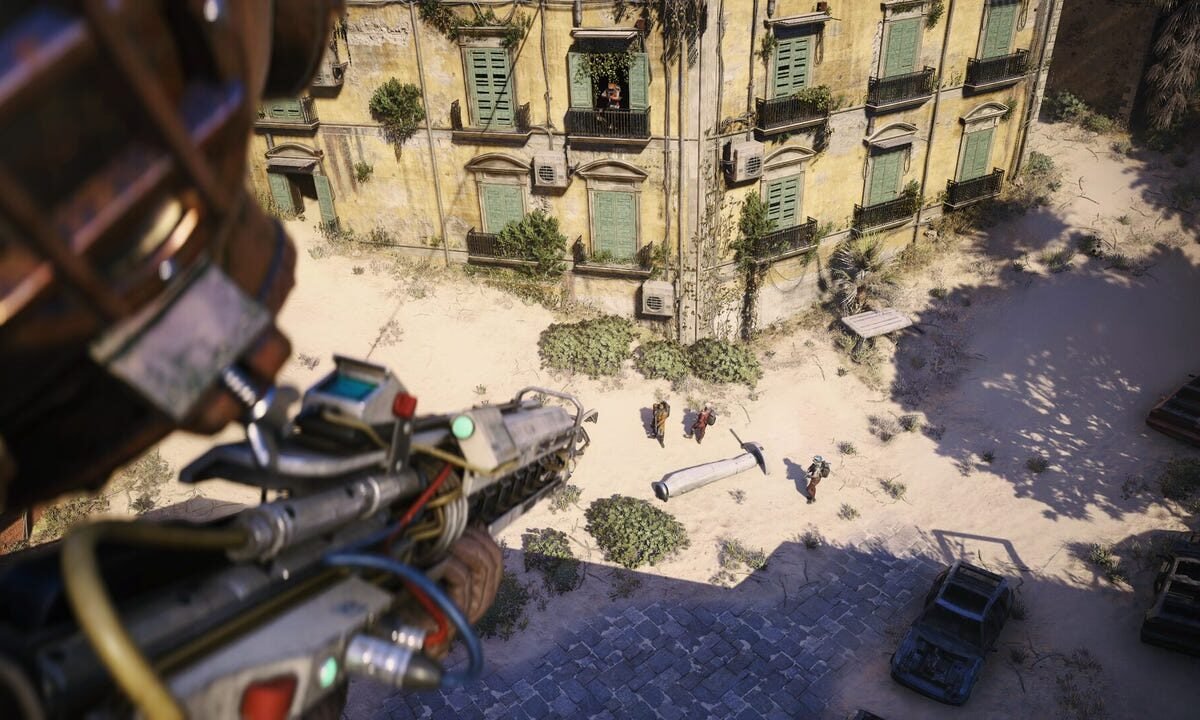The Evolving Role of AI in Game Development: A Dive into Arc Raiders
As the gaming industry continues to evolve, generative AI has emerged as a hot topic among developers and publishers. Nexon, the publisher behind the much-anticipated title Arc Raiders, has openly defended the game’s integration of generative AI technologies. CEO Junghun Lee encourages players to understand that "every game company is now using AI," emphasizing its burgeoning importance in game development.
Generative AI in Action
At the heart of the discussion is Arc Raiders, a first-person shooter developed by Embark Studios. On its Steam store page, the team explicitly states their use of procedural- and AI-based tools during the content creation process. This commitment not only showcases innovation but also reflects the creativity of the developers. Although generative AI tools are often criticized for replacing human effort, Embark stresses that the final product is a culmination of their team’s unique vision and creativity.
Embark clarifies their position, explaining that while Arc Raiders utilizes machine learning—particularly for the locomotion of complex drones—it does not employ generative AI in content creation itself. The game’s design is reinforced by hiring voice actors for their text-to-speech system, allowing for dynamic in-game communication without the logistical burden of repeated recording sessions.
AI as a Competitive Tool
Lee’s advocacy for AI as an efficiency booster speaks to a broader trend. He highlights that, with many companies adopting similar technologies, the real challenge lies in strategic differentiation. As he phrased it, “if everyone is working with the same or similar technologies, the real question becomes: how do you survive?” His insight reflects a palpable shift in the industry where companies must leverage AI to enhance their competitiveness in both production and live service operations.
This sentiment is echoed by other industry leaders. For instance, EA’s CEO Andrew Wilson has touted AI as central to their operations, while Square Enix is reorganizing to aggressively implement AI across its development processes. The consensus appears to be that AI not only streamlines production but also opens new avenues for creativity and innovation in game design.
Diverging Perspectives
While some companies embrace AI, others, like Nintendo, maintain a more conservative stance. Shigeru Miyamoto has previously indicated that Nintendo would prefer to explore alternative routes rather than adopt a heavy reliance on AI, setting the company apart in an industry increasingly defined by technological integration.
This divergence poses an intriguing question for players and developers alike: Will the shift towards AI enhance the authenticity and emotional experience of games, or will it result in a more homogenized product across the industry?
The Success of Arc Raiders
Despite the ongoing debates about AI in game design, Arc Raiders has defied expectations, selling over 4 million copies within two weeks of its release. As proof of its success, the game reportedly reached a peak of 700,000 concurrent players, showcasing its widespread appeal. Players have lauded its immersive mechanics, emphasizing a gripping progression system and exhilarating gameplay that keeps them engaged.
IGN’s review aptly encapsulates this sentiment, awarding Arc Raiders a stellar score of 9/10, praising its ability to push the boundaries of the extraction shooter genre. Noteworthy is the game’s aesthetic appeal and technical performance, indicating that the integration of AI has not compromised quality but rather enhanced it.
Players looking to dive into Arc Raiders can find an array of guides and resources to optimize their gameplay experience, from adjusting in-game settings to strategically unlocking skills that enhance their performance.
In an environment where AI is becoming more commonplace, the success of Arc Raiders raises questions about the future of game development: how will creative teams balance human artistry with technological innovation in the years to come?





